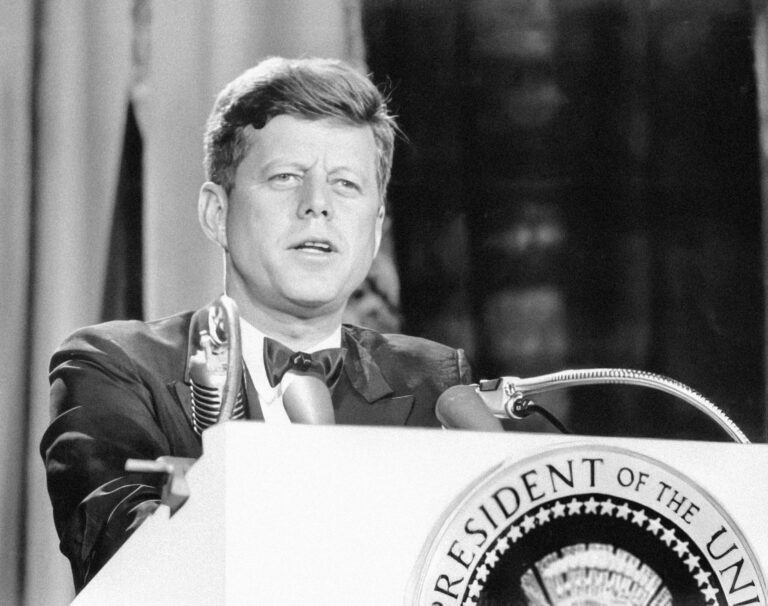The world bids farewell to an extraordinary figure with the passing of Jimmy Carter, who died peacefully at 100 years old in his hometown of Plains, Georgia. His death marks the conclusion of an era of unparalleled humanitarian efforts and ethical leadership. As the 39th President of the United States, Carter’s influence extended far beyond the political sphere, shaping both national and global landscapes with his dedication to peace, human rights, and health care. His legacy, characterized by compassion and selflessness, will continue to inspire people around the world for generations to come.
A Presidency Defined by Diplomacy and Integrity
Jimmy Carter’s time in office (1977–1981) was marked by significant domestic and international challenges. At home, he contended with a soaring inflation rate, an energy crisis, and an economic downturn. On the global stage, his administration faced the turmoil of the Iran hostage crisis, which tested his resolve. Yet, despite these challenges, Carter’s presidency was defined by his unwavering commitment to human rights and diplomacy.
One of his most significant achievements was the successful negotiation of the Camp David Accords in 1978, which brokered a historic peace agreement between Egypt and Israel. This momentous accomplishment reshaped the dynamics of the Middle East, demonstrating Carter’s unique ability to facilitate reconciliation in a region riddled with conflict. Additionally, Carter’s administration pushed forward a strong energy reform agenda, advocating for energy conservation and alternative sources during the oil crisis. These efforts laid the groundwork for the ongoing global conversation on climate change and energy sustainability.
Though his time in office was fraught with political adversity, Carter’s leadership was guided by a strong moral compass. His administration focused on advancing democratic values, promoting peace worldwide, and defending human rights. These efforts had a lasting impact, establishing a global reputation for Carter as a leader committed to justice and fairness, both during and after his presidency.
Redefining Post-Presidency
After leaving the White House, Carter redefined the traditional role of a former president. Rather than retreating from public life, he immersed himself in humanitarian work through the creation of the Carter Center in 1982. The center became a beacon for peace, global health, and democracy. Among its most notable accomplishments was the near-eradication of Guinea worm disease, a remarkable feat that demonstrated Carter’s hands-on approach to solving complex global health issues.
Carter also played a vital role in combating diseases such as malaria, river blindness, and polio. His work with the Carter Center in tackling these issues helped improve the lives of millions worldwide. Furthermore, his deep commitment to social justice was embodied in his partnership with Habitat for Humanity, a nonprofit that builds homes for those in need. Carter and his wife, Rosalynn, worked on countless construction projects, demonstrating that service to others transcends age and position.
In recognition of his decades of humanitarian work, Carter was awarded the Nobel Peace Prize in 2002. This prestigious honor acknowledged his tireless efforts to promote human rights, conflict resolution, and global peace. The Nobel Committee praised his decades-long dedication to improving the world, a testament to his selflessness and commitment to the greater good.
A Life Marked by Humility and Empathy
More than any political or humanitarian accolade, Carter’s legacy is defined by his humility, empathy, and integrity. Throughout his life, he was a staunch advocate for nonviolence, environmental conservation, and human dignity. Even as his health declined in his final years, Carter continued to speak out on issues such as climate change and social justice, demonstrating his unwavering dedication to the causes he cared most about.
Upon his passing, tributes poured in from world leaders, international organizations, and individuals from all walks of life, all honoring his legacy. President Joe Biden aptly described Carter as a leader whose influence “will continue to inspire generations,” a sentiment that resonates with the millions of people whose lives he touched.
The End of an Extraordinary Century-Long Journey
The passing of Jimmy Carter marks more than the loss of a former president; it symbolizes the end of an extraordinary century-long journey of compassion and service. From his early life in rural Georgia to his leadership in the White House and his tireless humanitarian efforts thereafter, Carter’s life exemplifies what can be achieved when a leader’s guiding principles are grounded in service rather than personal ambition.
Although Jimmy Carter is no longer with us, his legacy remains alive in the institutions he helped establish, the causes he championed, and the countless lives he touched. His story serves as a poignant reminder of the power of integrity, ethical leadership, and a lifelong commitment to making the world a better place for everyone.



